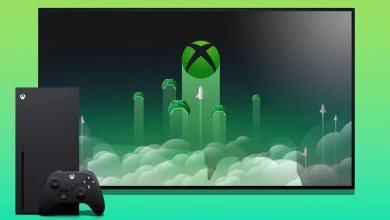The Internet Age and Online Gaming: Connecting Players in a Digital World
The Internet Age and Online Gaming

Introduction:
The Internet age has revolutionized nearly every aspect of human life, and gaming is no exception. Online gaming, made possible by the widespread adoption of high-speed internet connections and digital distribution platforms, has transformed the gaming landscape, enabling players from around the world to connect, compete, and collaborate in real-time. This article explores the evolution of online gaming, its impact on gaming culture, and the opportunities and challenges it presents in the digital age.
The Early Days of Online Gaming:
The roots of online gaming can be traced back to the early days of the internet, when text-based multiplayer games like “MUDs” (Multi-User Dungeons) and “MUSHes” (Multi-User Shared Hallucinations) provided players with virtual worlds to explore and interact with others. However, it wasn’t until the 1990s that online gaming truly began to take off with the advent of online multiplayer services like “The Sierra Network” (later renamed to “ImagiNation Network”) and “Battle.net,” which allowed players to connect and play games like “Diablo” and “Warcraft” with others over the internet.
The Rise of Online Console Gaming:
In the late 1990s and early 2000s, online gaming expanded to consoles with the release of platforms like the Sega Dreamcast, PlayStation 2, and Xbox, which introduced online multiplayer capabilities to a broader audience. Games like “Phantasy Star Online,” “SOCOM: U.S. Navy SEALs,” and “Halo 2” pioneered online console gaming, bringing competitive and cooperative gameplay experiences to living rooms around the world. The introduction of subscription-based online services like Xbox Live and PlayStation Network further facilitated online gaming on consoles, providing players with features such as matchmaking, voice chat, and digital downloads.
The Era of PC Gaming and MMORPGs:
Meanwhile, PC gaming flourished in the internet age, with massively multiplayer online role-playing games (MMORPGs) like “EverQuest,” “World of Warcraft,” and “Guild Wars” captivating millions of players with their vast virtual worlds and social gameplay experiences. MMORPGs introduced persistent online universes where players could create characters, embark on epic quests, and interact with thousands of other players in real-time. The success of MMORPGs demonstrated the potential of online gaming to create immersive, community-driven experiences that transcended traditional single-player and multiplayer modes.
The Emergence of Esports and Streaming:
In recent years, online gaming has evolved beyond casual play to become a competitive sport and spectator phenomenon. Esports, or competitive gaming, has exploded in popularity, with professional players and teams competing in tournaments for millions of dollars in prize money. Games like “League of Legends,” “Counter-Strike: Global Offensive,” and “Fortnite” attract millions of viewers on streaming platforms like Twitch, YouTube Gaming, and Mixer, where fans tune in to watch live matches, commentary, and analysis from their favorite players and personalities. Streaming has also democratized gaming content creation, allowing anyone with an internet connection and a gaming PC or console to broadcast their gameplay to a global audience, build communities, and even make a living through sponsorships, donations, and ad revenue.
Challenges and Opportunities:
While online gaming has brought unprecedented connectivity and social interaction to players worldwide, it also presents challenges and concerns, such as cybersecurity threats, online harassment, and addictive behavior. Developers and platform providers must address these issues while also seizing the opportunities presented by online gaming, such as cross-platform play, cloud gaming, and virtual reality. Additionally, online gaming has the potential to drive positive social impact through initiatives like charity streams, community events, and educational programs that leverage gaming as a tool for learning and socialization.
Conclusion:
The internet age has transformed gaming from a solitary pastime into a global phenomenon, connecting players from diverse backgrounds and cultures in shared virtual spaces. Online gaming has democratized access to interactive entertainment, fostering communities, friendships, and experiences that transcend geographical boundaries. As technology continues to advance and the internet becomes even more ubiquitous, the future of online gaming holds endless possibilities for innovation, collaboration, and connection in the digital age.
Exploring the Genesis: The Early Days of Online Gaming
Introduction:
The early days of online gaming marked a pivotal moment in the history of interactive entertainment, laying the groundwork for the global phenomenon that gaming has become today. This article delves into the origins, challenges, and innovations of online gaming during its formative years, tracing its evolution from text-based adventures to the vibrant multiplayer experiences of the modern era.
The Dawn of Online Gaming:
The concept of online gaming began to take shape in the late 1970s and early 1980s with the emergence of networked computer systems and bulletin board systems (BBS). These primitive networks enabled players to connect and play text-based games, such as MUDs (Multi-User Dungeons) and MUSHes (Multi-User Shared Hallucinations), in which participants could explore virtual worlds, interact with other players, and embark on collaborative adventures. Despite the limitations of early networking technology, these pioneering efforts laid the foundation for the online gaming experiences that would follow.
The Rise of Dial-Up Services:
The widespread adoption of dial-up internet services in the 1990s brought online gaming to a broader audience, allowing players to connect to multiplayer games through their home computers. Services like The Sierra Network (later renamed to ImagiNation Network) and AOL (America Online) offered access to a variety of multiplayer games, including classic titles like “Neverwinter Nights,” “MegaWars III,” and “GemStone III.” These early online gaming platforms introduced features such as chat rooms, leaderboards, and player profiles, enhancing the social and competitive aspects of gaming.
The Birth of Online Console Gaming:
In parallel with the rise of PC-based online gaming, console manufacturers began to explore online multiplayer capabilities for their gaming platforms. The Sega Dreamcast, released in 1999, was the first console to include a built-in modem for online play, enabling players to connect and compete in games like “Phantasy Star Online” and “Quake III Arena.” The Dreamcast’s online service, SegaNet, paved the way for future online console gaming experiences on platforms like the PlayStation 2, Xbox, and Nintendo GameCube, ushering in a new era of online multiplayer gaming in the living room.
Technical Challenges and Innovations:
The early days of online gaming were not without challenges, as developers grappled with issues such as latency, bandwidth limitations, and server stability. Dial-up connections, in particular, presented significant technical hurdles, leading to laggy gameplay and frequent disconnections for players. However, technological advancements in networking hardware and software, as well as improvements in internet infrastructure, helped to address these challenges over time. The adoption of broadband internet connections, dedicated servers, and client-server architectures enabled developers to create more reliable and responsive online gaming experiences, laying the groundwork for the explosive growth of online gaming in the years to come.
Cultural Impact and Legacy:
Despite its technical limitations, online gaming had a profound cultural impact, shaping the way people interacted with technology and entertainment. Online gaming fostered communities, friendships, and rivalries among players from around the world, transcending geographical and cultural boundaries. It introduced concepts such as clans, guilds, and esports, laying the groundwork for the vibrant online gaming culture that exists today. Moreover, online gaming paved the way for future innovations in multiplayer gaming, from massive multiplayer online role-playing games (MMORPGs) to competitive esports tournaments, ensuring its lasting legacy in the history of gaming.
Conclusion:
The early days of online gaming were characterized by experimentation, innovation, and a pioneering spirit as developers and players alike explored the possibilities of connected gaming experiences. Despite the technical challenges and limitations of the time, online gaming laid the foundation for the vibrant and interconnected gaming landscape that exists today, shaping the way we play, connect, and compete in virtual worlds. As technology continues to evolve and connectivity becomes even more ubiquitous, the legacy of the early days of online gaming will continue to inspire future generations of players and developers alike.
Introduction:
The Evolution of Gaming in the Digital Era
In the past few decades, the world of gaming has undergone a remarkable transformation. With the advent of the internet, the gaming landscape has shifted from traditional consoles and arcades to the vast digital realm of online gaming. This revolution has not only changed the way games are played but has also had a significant impact on the gaming industry as a whole. In this article, I will explore the rise of online gaming, its impact on the industry, the benefits it brings to players, the social aspect of online gaming, the role of technology in shaping the experience, the future trends and innovations, as well as providing tips for beginners on how to get started with online gaming.
The Rise of Online Gaming:
How the Internet Transformed the Gaming Landscape
The rise of online gaming can be attributed to the widespread availability of high-speed internet connections and the advancements in technology. In the early days, online gaming was limited to simple text-based games and basic multiplayer experiences. However, with the introduction of broadband internet, gamers were able to connect with each other in real-time, leading to the birth of massively multiplayer online games (MMOs). These games allowed thousands of players to interact and compete in virtual worlds, creating a whole new level of immersion and excitement.The internet has transformed the gaming landscape by breaking down the barriers of physical distance. Players from all around the world can now come together and engage in multiplayer experiences, regardless of their geographical locations. This has not only expanded the player base but has also fostered a sense of global community among gamers. The ability to play with and against people from different cultures and backgrounds has enriched the gaming experience, promoting diversity and inclusivity.The accessibility of online gaming has also been greatly enhanced by the proliferation of mobile devices. With smartphones and tablets becoming increasingly powerful, gamers now have the freedom to play their favorite games anytime, anywhere. This has made gaming a more integral part of our daily lives, blurring the lines between virtual and real-world experiences.
The Impact of Online Gaming on the Gaming Industry
The rise of online gaming has had a profound impact on the gaming industry as a whole. Traditional gaming consoles and arcades have faced tough competition from online platforms, forcing companies to adapt to the changing landscape. Many game developers have shifted their focus towards creating online multiplayer experiences, recognizing the potential for greater player engagement and monetization.The introduction of microtransactions and in-game purchases has become a lucrative business model for online games. Players can now purchase virtual items, cosmetic upgrades, and additional content to enhance their gaming experience. This has not only provided a new source of revenue for developers but has also allowed players to customize their gameplay and express their individuality.Online gaming has also revolutionized the distribution of games. With the rise of digital marketplaces such as Steam, Epic Games Store, and console-specific platforms like PlayStation Network and Xbox Live, players can now download games directly to their devices, eliminating the need for physical copies. This has made games more accessible and affordable, opening up the industry to a wider audience.
The Benefits of Online Gaming for Players
Online gaming offers a multitude of benefits for players. Firstly, it provides a platform for social interaction and connection. Through online multiplayer experiences, players can form friendships, join communities, and collaborate with others to achieve common goals. This sense of camaraderie and teamwork not only enhances the gameplay but also has a positive impact on mental health by combating feelings of isolation and fostering a sense of belonging.Furthermore, online gaming provides a diverse range of experiences and genres to cater to every player’s preferences. Whether you enjoy competitive games that test your skills, cooperative games that encourage teamwork, or immersive storytelling experiences, the online gaming world has something for everyone. This variety ensures that players are constantly engaged and entertained, with endless opportunities for exploration and discovery.Another significant advantage of online gaming is the continuous updates and support provided by developers. Unlike traditional games that are released as a finished product, online games receive regular updates, bug fixes, and new content. This ensures that the gaming experience remains fresh and exciting, with a constant stream of new challenges and features to look forward to.
The Social Aspect of Online Gaming: Connecting Gamers Worldwide
One of the most remarkable aspects of online gaming is its ability to connect gamers from all around the world. Through online multiplayer experiences, players can transcend geographical boundaries and interact with individuals from different cultures and backgrounds. This global community fosters a sense of unity and shared experiences, promoting cross-cultural understanding and friendship.Online gaming has also given rise to dedicated communities and platforms where players can come together and share their passion for games. Forums, blogs, and social media groups provide spaces for gamers to discuss their favorite games, share tips and strategies, and form lasting friendships. These communities not only enhance the gaming experience but also provide valuable resources and support for players.Furthermore, online gaming has become a platform for competitive esports, with professional players and teams competing in tournaments for massive prize pools. The rise of streaming platforms such as Twitch and YouTube Gaming has made it possible for players to watch and learn from the best in the industry. This has not only elevated gaming to a professional level but has also created new career opportunities for aspiring gamers.
The Role of Technology in Online Gaming
Technology plays a crucial role in shaping the online gaming experience. The advancements in graphics, processing power, and network infrastructure have allowed for more immersive and visually stunning games. From realistic physics simulations to lifelike character animations, technology has pushed the boundaries of what is possible in the virtual world.The development of cloud gaming has also revolutionized the way games are played and accessed. With cloud gaming services such as Google Stadia and Nvidia GeForce Now, players can stream games directly to their devices without the need for powerful hardware. This eliminates the barrier of entry for many players and allows for seamless gaming experiences across different platforms.Artificial intelligence (AI) has also made significant contributions to online gaming. AI-powered NPCs (non-player characters) can now provide more realistic and engaging interactions, making the game world feel alive and dynamic. Additionally, AI algorithms can analyze player behavior and adapt the game difficulty accordingly, providing a personalized and challenging experience for each player.
The Future of Online Gaming: Trends and Innovations
As technology continues to evolve, so does the world of online gaming. Several trends and innovations are shaping the future of gaming, promising even more immersive and engaging experiences for players. Virtual reality (VR) and augmented reality (AR) technologies are gaining traction, allowing players to step into fully immersive virtual worlds or overlay digital elements onto the real world. This opens up new possibilities for interactive storytelling and gameplay mechanics.The integration of blockchain technology has also started to make an impact on the gaming industry. Blockchain-powered games offer unique features such as true ownership of in-game assets and the ability to trade and sell virtual items securely. This not only adds value to the gaming experience but also creates new economic opportunities for players.Furthermore, the rise of cloud gaming services is set to revolutionize the industry even further. With the ability to stream games directly to any device, players will no longer be tied to specific hardware or platforms. This freedom and flexibility will redefine the gaming experience, making it more accessible and convenient for players of all backgrounds.
How to Get Started with Online Gaming: Tips for Beginners
If you’re new to online gaming, getting started can be a bit overwhelming. Here are a few tips to help you navigate the world of online gaming:
Choose the right platform:
Decide whether you want to play on a PC, console, or mobile device. Each platform has its own advantages and limitations, so choose the one that suits your preferences and budget.
Research games:
Take the time to research different games and genres to find ones that align with your interests. Read reviews, watch gameplay videos, and join online communities to get a sense of what each game has to offer.
Start with beginner-friendly games:
If you’re new to gaming, it’s best to start with games that have a gentle learning curve. Look for games that offer tutorials or have a dedicated beginner mode to help you get up to speed.
Join online communities:
Engage with other players by joining online gaming communities, forums, and social media groups. This will not only help you make friends but also provide a valuable source of information and support.
Practice and have fun:
Like any skill, gaming takes practice. Don’t be discouraged if you’re not immediately good at a game. Take your time, learn from your mistakes, and most importantly, have fun!
Online Gaming Communities: Forums, Blogs, and Social Media Groups
Online gaming communities play a vital role in connecting players and fostering a sense of belonging. Whether you’re looking for advice, want to share your gaming experiences, or simply want to connect with like-minded individuals, there are plenty of resources available.Forums such as Reddit, GameFAQs, and Steam Community provide spaces for discussions, game recommendations, and troubleshooting. These forums are great places to ask questions, share tips and strategies, and join ongoing conversations about your favorite games.Blogs and websites dedicated to gaming offer a wealth of information, news, and reviews. Whether you’re looking for in-depth analyses of game mechanics, industry trends, or interviews with developers, gaming blogs provide a valuable resource for staying up to date with the latest happenings in the gaming world.Social media platforms such as Twitter, Facebook, and Discord have also become popular hubs for gaming communities. Joining gaming-focused groups and following influential gamers and content creators allows you to connect with a wider audience, discover new games, and participate in events and giveaways.
Conclusion:
Embracing the Digital Transformation in the Gaming World
The revolution of online gaming in the digital era has transformed the gaming landscape in ways we could have never imagined. The internet has opened up a world of possibilities, connecting gamers from all around the world and providing immersive and engaging experiences. The gaming industry has evolved to adapt to this digital transformation, offering a diverse range of games, monetization models, and platforms.As technology continues to advance, the future of online gaming looks brighter than ever. With innovations such as VR, AR, cloud gaming, and blockchain technology on the horizon, players can expect even more immersive and personalized experiences. Whether you’re a seasoned gamer or just starting your journey, online gaming offers a world of adventure and excitement waiting to be explored. So embrace the digital transformation, connect with fellow gamers, and get ready to embark on unforgettable gaming adventures.











